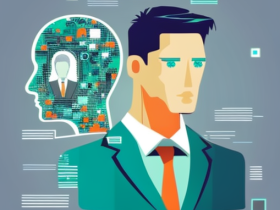OpenAI Faces Legal Battle Over Use of Internet Data to Train AI Technology
A prominent California-based law firm, Clarkson, has taken legal action against OpenAI, the artificial intelligence company behind the popular chatbot ChatGPT. The firm has filed a class-action lawsuit, alleging that OpenAI massively violated copyrights and privacy rights by utilizing data scraped from the internet to train its groundbreaking AI technology.
Clarkson, known for its extensive experience in handling large-scale class-action lawsuits, seeks to represent the interests of individuals whose information was allegedly stolen and commercially misappropriated by OpenAI. Ryan Clarkson, the firm’s managing partner, expressed the aim of advocating for “real people whose information was stolen and commercially misappropriated to create this very powerful technology.”
The lawsuit, filed in federal court in the northern district of California, marks a significant moment in the ongoing debate surrounding the use of “generative” AI tools such as chatbots and image generators. These technologies rely on vast amounts of data from the open internet to build complex models capable of generating responses and even passing professional exams. However, concerns have been raised regarding the consent and compensation of individuals whose data is used in the training process.
According to Clarkson, the lawsuit aims to establish legal guardrails for AI algorithms’ training methods and ensure proper compensation for individuals whose data is utilized. By pursuing this legal course, Clarkson hopes to prompt a court to examine the utilization of AI algorithms and the rights of individuals involved.
OpenAI, which has captured the public’s imagination with its AI breakthroughs, has yet to respond to the allegations raised in the lawsuit. The case not only questions the legality of using scraped data from the internet but also highlights the need for transparency and safeguards in AI development.
This class-action lawsuit adds to the growing list of legal challenges faced by companies in the AI sector. In November, OpenAI and Microsoft were targeted in a similar lawsuit regarding the usage of computer code from the coding platform GitHub to train AI tools. Stability AI, a smaller AI startup, was sued by Getty Images for alleged illegal use of its photos to train an image-generating bot. OpenAI also faced a defamation lawsuit from a radio host in Georgia, claiming that ChatGPT had produced text wrongfully accusing him of fraud.
While OpenAI is not the sole company leveraging scraped data from the internet to train AI models, Clarkson decided to focus on OpenAI due to its prominent role in driving the AI arms race and inspiring other major tech companies to pursue similar AI advancements.
The lawsuit against OpenAI raises concerns about transparency and disclosure, alleging that the company fails to adequately inform users that their data may be used to train new products. It also claims that OpenAI does not sufficiently verify the age of users to ensure compliance with regulations, drawing comparisons to past controversies surrounding tech giants like Facebook and YouTube.
The legal battle between Clarkson and OpenAI is expected to shed light on the complex legal and ethical issues surrounding the use of internet data in AI development. As regulators discuss new laws to enforce transparency, and potential court cases could demand more data disclosure from AI companies, the future of AI development and data utilization hangs in the balance.
It remains to be seen how this class-action lawsuit will unfold and what impact it might have on the broader AI industry. As the legal proceedings progress, stakeholders will be watching closely to understand the potential ramifications for the use of scraped data and the responsibilities of AI developers.







Leave a Reply